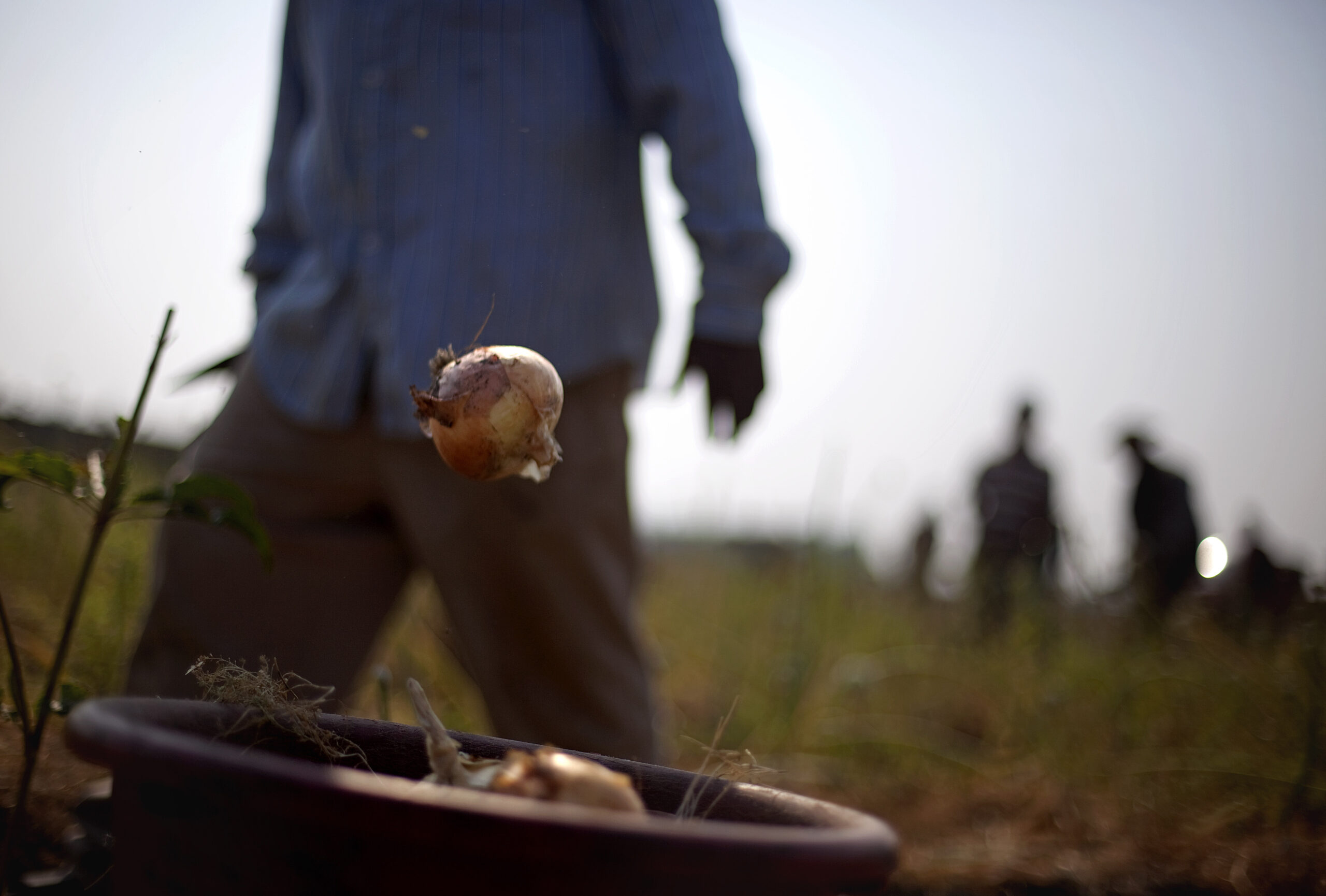In Georgia, the Vidalia onions and first wave of blueberries are already in stores. Sweet corn is getting picked now, and agricultural workers from out of state and out of the country are here – or heading here – to help pick Georgia’s fruits and vegetables.
Tens of thousands of people travel to Georgia every year to work in farm fields and in packing plants. Many of them live in close quarters and get to work in crowded buses, and that’s raised concerns about the coronavirus spreading in a community with limited access to health care.
“Many of these farm workers, including my parents, they don’t make enough money to get health insurance, or their employer doesn’t provide them health insurance,” Erick Martinez Juarez said.
He was born and raised near Bainbridge, Georgia. His parents came here from Mexico in the 1980s, working as field laborers in Texas, Florida and North Carolina before settling down to raise their family in southwest Georgia.
Juarez’s dad still works on farms, operating equipment in the fields. And Juarez is a third-year medical student at the Medical College of Georgia in Augusta. He hopes to use his health training to advocate for farm workers.
On top of the health problems many people have, like diabetes and hypertension, agricultural workers also face occupational hazards, like exposure to heat and pesticides.
And now there’s the coronavirus.
“In speaking to my dad about this, he told me that, I mean, he’s worried to an extent, but he feels a little indifferent about it,” Juarez said. “He – and I’m sure this applies to many others like him – they feel like there’s nothing much they can do about it.”
Juarez points out that his family is in a much better position than many others. His parents own their home and don’t move around from state to state anymore, following the harvest. Guest workers here from other countries, or migrants who live in the U.S. year-round, often stay in work camps or bunk houses — close living quarters that make social distancing difficult.
“Twenty people could use the same bathroom,” said Roxana Chicas, a nurse who is getting a Ph.D. at Emory, studying farmworker health. “If one worker were to get COVID-19 in one of those barracks, I mean, it’ll be like a wildfire.”
Transportation to and from the farms – often in crowded buses – is a concern. And even in the fields, workers can’t always social distance either.
Dr. Jodie Guest, an epidemiologist at Emory, who volunteers in South Georgia farmworker health clinics and has also done coronavirus testing at poultry plants in North Georgia, said it all adds up to make farmworkers an at-risk population.
“I think we see in these poultry plants, and prison systems, and nursing home living facilities, this rapid spread once someone tests positive, and that’s the situation we’re looking at here as well,” she said.
The National Guard has done testing at farms that request it. The state Department of Public Health is offering guidance, though it’s not tracking the number of cases among farmworkers.
And Georgia’s agriculture industry is paying attention.
“We’re watching what’s happening up in the North Georgia area with the meat industry and the poultry industry,” Beth Oleson, director of education and food safety at the Georgia Fruit and Vegetable Growers Association, said.
Her group has been working to help farmers prepare, and she says growers she works with are trying to be proactive.
Take Mike Bruorton.
“You want to do everything that you can do,” he said.
Bruorton, the general manager of Superior Berries in Fargo, Georgia, said their blueberry harvest is done for the year now, but during picking time, there were 100 people working there, including many guest workers.
“Thank goodness no one showed any symptoms of COVID whatsoever, from start to finish,” he said. “We were blessed.”
They were also prepared. Bruorton said they encouraged frequent hand washing, checked temperatures multiple times a day and practiced social distancing during lunch. They retooled how people worked in the fields and gave them more space in their housing. He also set aside housing units in case anyone needed to go into isolation; no one did.
And, he says, he asked a lot of questions of local health officials.
“Some people may not take it seriously,” he said. “We did. Shutting down an entire operation and losing revenue is one thing. But losing a life? That’s a totally different creature.”
He said his advice for farmers heading into their harvest season now is to do whatever they need to do to protect themselves, and their employees.









